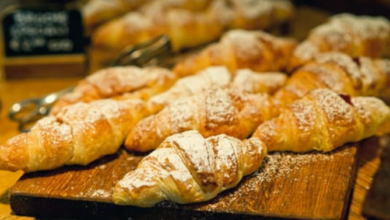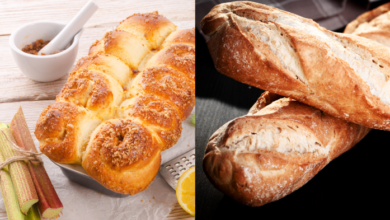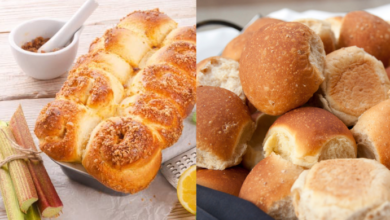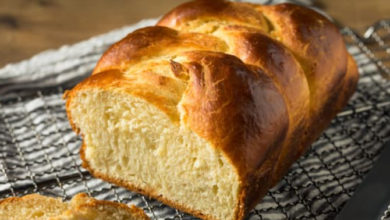Brioche Bread: How to Know When It Is Done
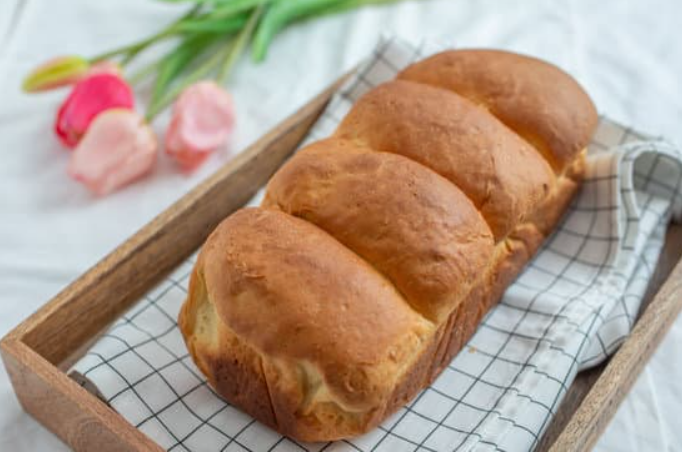
What To Know
- The crust of a perfectly cooked brioche should be a beautiful golden brown.
- If the crust is too pale, the brioche may not be fully cooked, while a dark crust indicates overcooking.
- A too-low temperature will result in a dense brioche, while a too-high temperature can burn the crust.
Brioche, the delectable French pastry known for its rich, buttery flavor and fluffy texture, is a culinary masterpiece that requires precision and attention to detail. One of the most crucial aspects of brioche baking is determining when the pastry has reached its ideal doneness. This guide will provide you with comprehensive insights on how to know when brioche is cooked, ensuring that your creations achieve perfection every time.
The Visual Cues
1. Golden-Brown Crust:
The crust of a perfectly cooked brioche should be a beautiful golden brown. The color should be even and not too dark or pale. If the crust is too pale, the brioche may not be fully cooked, while a dark crust indicates overcooking.
2. Even Surface:
The surface of the brioche should be smooth and even, without any large cracks or fissures. Cracks can occur if the dough was not kneaded properly or if the brioche was overproofed.
The Physical Tests
3. Thermometer Test:
The most accurate way to determine if brioche is cooked is to use a meat thermometer. Insert the thermometer into the center of the brioche and check the internal temperature. Brioche should be cooked to an internal temperature of 190-200°F (88-93°C).
4. Finger Test:
Gently press on the top of the brioche. If the dough springs back quickly, the brioche is done. If the dough feels dense or sticky, it needs more baking time.
The Sensory Cues
5. Aroma:
The aroma of freshly baked brioche is unmistakable. It should be rich, buttery, and slightly yeasty. If the brioche has an off-odor or no aroma, it may not be cooked properly.
6. Taste:
Of course, the ultimate test is to taste the brioche. It should be soft, moist, and have a balanced sweetness. If the brioche is dry or undercooked, it will have a doughy texture.
Additional Tips
7. Baking Time:
The baking time for brioche will vary depending on the size and shape of the pastry. As a general rule, small brioches will take around 15-20 minutes to bake, while larger brioches may take up to 30 minutes.
8. Oven Temperature:
The ideal oven temperature for baking brioche is 375-400°F (190-204°C). A too-low temperature will result in a dense brioche, while a too-high temperature can burn the crust.
9. Rotation:
During baking, rotate the brioche pan halfway through to ensure even cooking. This will prevent one side from overcooking while the other remains undercooked.
Final Thoughts: Brioche Mastery
Mastering the art of knowing when brioche is cooked is essential for achieving the perfect pastry. By combining visual cues, physical tests, sensory observations, and additional tips, you can confidently determine the doneness of your brioche and create delectable treats that will impress your taste buds and culinary skills.
Quick Answers to Your FAQs
1. Why is my brioche crust pale?
- The brioche may not have been baked for long enough.
- The oven temperature may have been too low.
- The brioche may have been overproofed.
2. Why is my brioche dry?
- The brioche may have been overbaked.
- The dough may have been too dry.
- The brioche may have not been stored properly.
3. Why is my brioche dense?
- The dough may not have been kneaded properly.
- The brioche may have been underproofed.
- The oven temperature may have been too low.
